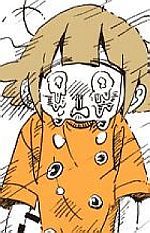So I heard something controversial happened in the world of manga reviews. And it quite happens to revolve around a manga figure a lot of people know too well – Nagata Kabi.
Nagata’s latest release in the U.S., My Pancreas Broke, But My Life Got Better, was reviewed by Anime News Network. While I normally find their reviews of manga to be fine, something about this one ticked off A LOT of people on social media. Then I heard it got pulled off the website a few days after it was published, but I later found it via Archive.org.
So I read what the review was like and there’s a few points that came to my mind.
First, I can see why people were saying the reviewer, who is an actual mental health professional, was condescending towards Nagata’s experiences. Throughout all of her works, Nagata always seems to be going through something. It can make someone think that she’s not trying hard enough, especially if you’re a professional whose job is to help people like Nagata.
Second, the reviewer expressed frustration over Nagata not getting better. Maybe some of the frustration is warranted, but the thing is the reviewer doesn’t really know, know Nagata. They’re only getting a glimpse of Nagata’s personality through her works. While the works do provide a clear and often heavy picture of her life so far, I don’t think they tell the whole story. I remember Nagata saying she struggles with how she portrays herself in her memoir manga compared to how she is in person. There’s always multiple layers to a person.
Lastly, I know people are saying “How dare they call themselves a mental health pro if they are acting like an insensitive prick.” My response to that is because psychiatry/psychology has become a conflict-riddled field where some professionals turn out to be pricks. They are taught a very Western way of thinking in that the individual has no one to blame but themselves for whatever mental health disorder they have. All of the solutions should be placed in the hands of the individual. A lot of mental health professionals aren’t trained well enough to strongly consider factors (i.e. cultural/socioeconomic) outside of the individual that cause people to have mental distress.
While it does suck that Nagata seems to have something going on most of the time, I do want her to be okay. I don’t want her to force herself to be happy for the sake of other people. I have a lot of compassion for Nagata. While the reviewer says that she should get the professional help she needs and considering the reviewer’s earlier comments, I honestly don’t know if it might be the best idea for Nagata.
A long while back, when I was in therapy, my social worker switched me to a different psychiatrist than the one I was seeing at the time. I was originally under a Chinese psychiatrist, but my social worker said the new one fitted my schedule more. So I said alright. The new psychiatrist was a really old white male in his ‘60s-’70s with glasses. When I saw them for the first time, one of the first questions he asked was “How is my sex life?” I was aghast and questioned why he asked that. Then he went on to say “Maybe you should get a girlfriend. It can help your depression.” Over the next few sessions, that psychiatrist’s line of questioning about my well-being became a bit too personal to my liking. I told him to stop asking those questions and he apologized. I later told my social worker that I don’t want to see him anymore despite her saying that he’s a funny guy.
Seeing that review made me think about that awful psychiatrist experience I had and I do not want Nagata to go through moments like that because there’s a good amount of bad apples in the mental health industry.
I’m glad ANN took down that review because they’re not mental health professionals. And people like that reviewer are one of the big reasons why I got rid of the Manga Therapy name. I don’t think professionals have all the answers to life’s problems.
Going forward, there was a good question asked on social media – how do you make mental illness relatable to those who don’t have it? That’s hard because mental illness is always portrayed as “crazy”, “sick”, “mad”, etc. While it’s clear that extreme forms of mental illness can be problematic, I feel that depression and anxiety are normal signs that the world is messed up. You think that people in power want to admit that they’re the ones causing a lot of mental health problems?
You know, I think all people living with mental illness want is to not just be relatable – they want compassion, that’s it.
And in a way that doesn’t come off as something that sounds too much like a professional/expert, but more from an actual human being that doesn’t have to act like one.
